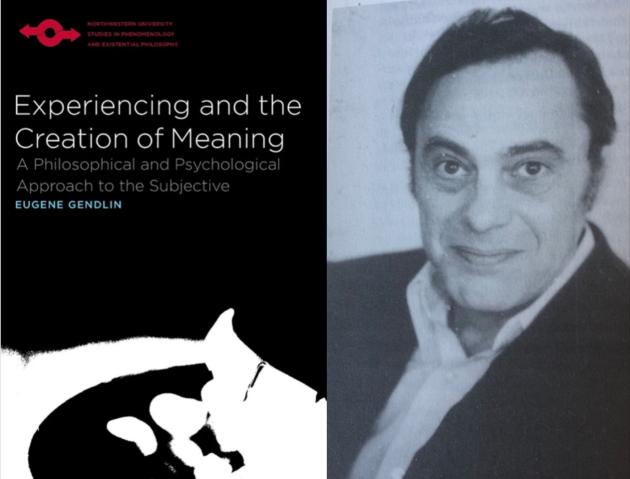The Meaning of Experiencing and the Creation of Meaning
by Catherine Torpey
A few years ago, I was having a chat with Gene Gendlin. In the course of our conversation, I referred to A Process Model as his magnum opus. That stopped the conversation cold. He vehemently corrected me, “No! ECM is!”
ECM (Experiencing and the Creation of Meaning) is much more accessible to the average reader than is APM (A Process Model), but it is no less important for that; in fact, as Gene’s correction of me indicates, it is the foundation from which everything else emerged. It is a revision of Gendlin’s PhD thesis, suitable for publication. It gives the philosophical foundation of Focusing, but it’s much more than that.
Northwestern University Press’s edition of ECM says that “this groundbreaking work speaks from the frontiers of philosophy.” Rob Parker (who is teaching the ECM reading course currently offered by The International Focusing Institute) says: “Unlike many philosophies, this one has been empirically tested: it is the basis for Focusing and Thinking at the Edge. But it has much wider implications: it points the way to a Copernican revolution in Western thinking, healing the traditional rift between objective science and subjective experiencing, enabling us to use felt meaning together with clear precise concepts and logic, strengthening both.”
The Gendlin Research Center will be offering a conversation based on Gendlin’s introduction to ECM on June 29 (click here for the details specific to your time zone, and watch for an email soon about how to sign up). The article on which they’ll be basing the conversation serves as Gendlin’s own introduction to ECM: “The Significance of Felt Meaning.” That article is of course available in the Gendlin Online Library here.
For those who would like a quick overview of ECM, on focusing.org you can find “The Ladybird Guide to Experiencing and the Creation of Meaning” (the name is explained in the document). It’s by Campbell Purton, who created and ran the Postgraduate Certificate in Focusing-Oriented Psychotherapy at the University of East Anglia in the United Kingdom for many years.
We are also making two videos temporarily available from last year’s Gendlin Symposium. These are deeper dives which might enrich your appreciation for ECM:
The first is a talk by Yasushi Kuba of Japan, who read his paper, “Symbolizing process as a dynamic boundary between the subject and the object: Critical considerations on Gendlin’s theory of functional relationships.” He takes about 25 minutes to read his paper before engaging in a Q&A, moderated by Donata Schoeller.
Another talk was given by Hideo Tanaka, also at the Gendlin Symposium last year. In his talk, Mr. Tanaka gives an in-depth insight into how Gendlin “secretly” incorporated the work of the philosopher Dilthey into ECM, because at the time of writing his dissertation on which it is based, logical positivism reigned supreme in the world of philosophy.
We hope that these resources will assist you in exploring the meaning of Experiencing and the Creation of Meaning for yourself. Of course, the very best idea is to read it, or to re-read it. You can find it in our bookstore if you don’t already have a copy. Enjoy!

